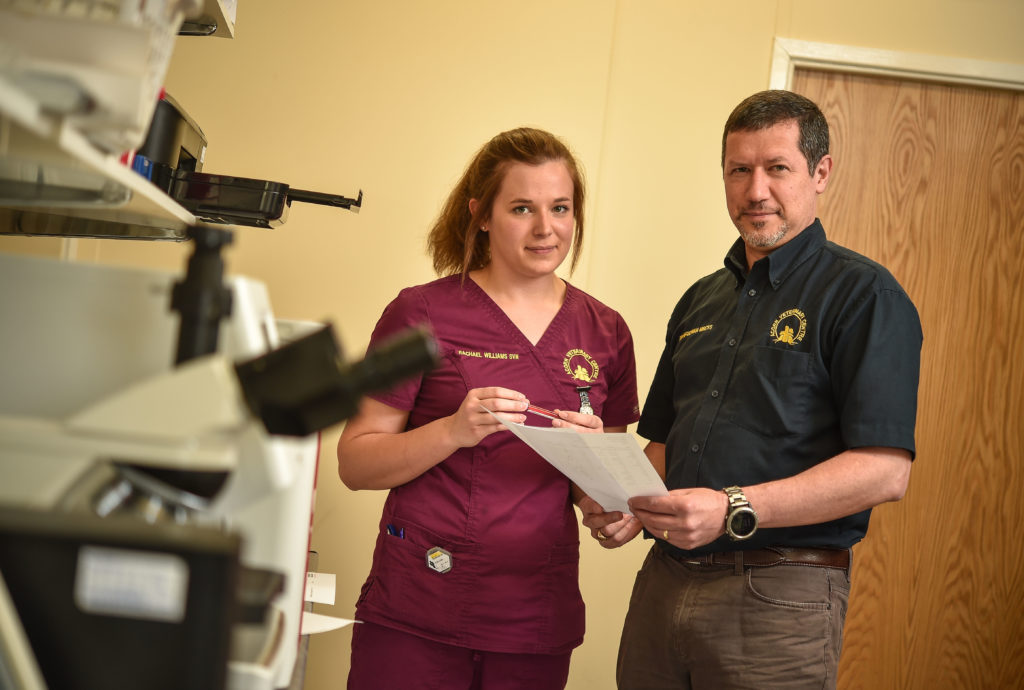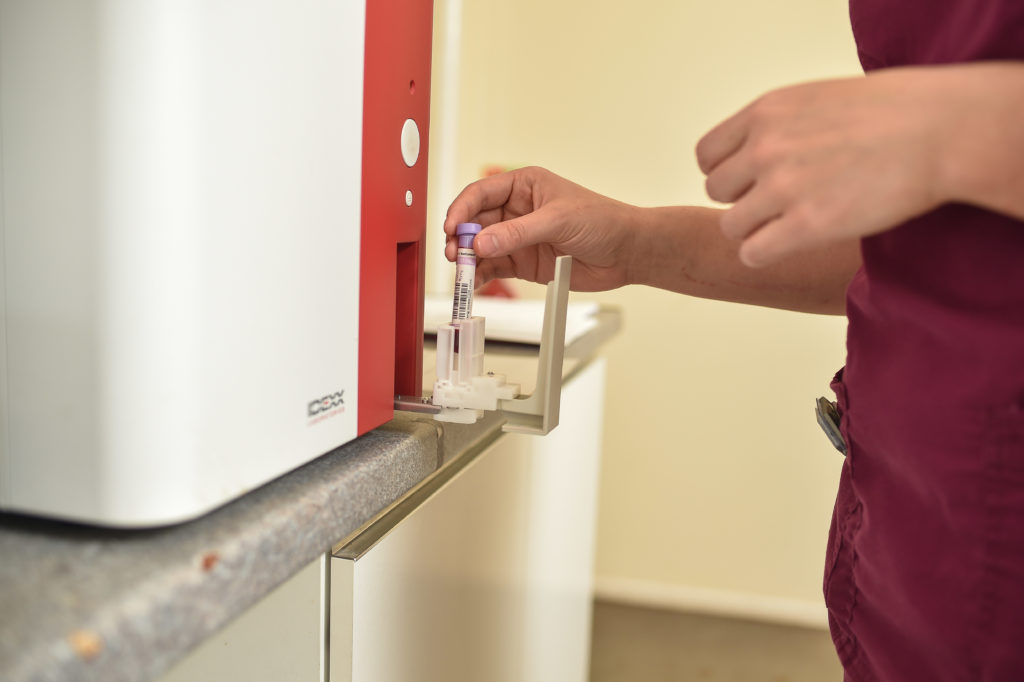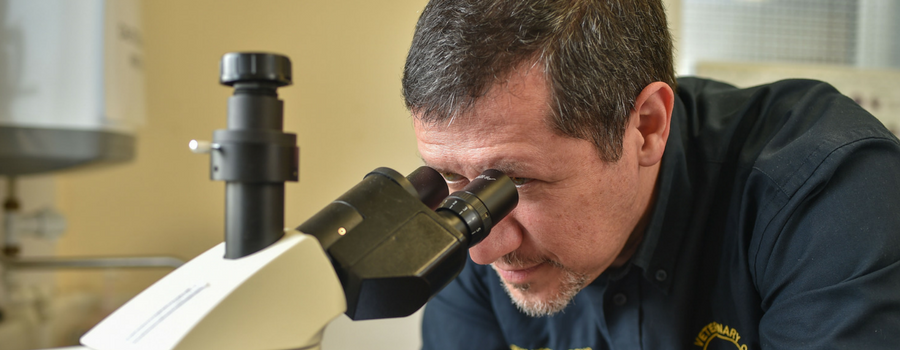[dropcap type=”circle”]A[/dropcap] local vet has been leading UK trials for a breakthrough diagnostic blood test which detects deadly illnesses in dogs and prompts life-saving treatment.
Tom McGowan, Small Animal Division Partner at Willows Veterinary Group and Head Vet at Acorn Veterinary Centre which is currently in a temporary home in Frankby while its former surgery in West Kirby undergoes a major redevelopment, said the new blood test was ‘a life saver’ and ‘marks a sea change’ in the ability of UK vets to quickly diagnose how sick a much-loved dog is.
He said: “The new CRP test can tell us faster than any other diagnostic tool we have whether a dog is seriously ill or not.”
The revolutionary test works by detecting the levels of a vital protein released by the liver in dogs. High levels of CRP – C-Reactive Protein – indicate a dog is suffering from systemic inflammation.

Tom, originally from Arkansas, USA, and now living with his family in Heswall, said: “In other words it tells us there is something going on which is seriously disrupting the dog’s whole body system right now.”
Tom added: “It prompts us to react instantly, to make key decisions and put the animal on life saving treatment such as antibiotics straight away.”
During the trial more than 200 dogs at four Willows Veterinary Group premises were analysed for CRP levels at the same time as they had other blood tests.
The CRP indicator highlighted those dogs with systemic inflammation much more quickly than the other tests, saving vital hours and allowing vets to make crucial decisions much earlier than would otherwise have been the case.

The test was developed by IDEXX, a global leader in veterinary diagnostics, which asked Willows Veterinary Group to undertake the first in-clinic UK field study using the CRP blood test equipment on site at Acorn Veterinary Surgery, West Kirby; Hampton Veterinary Centre, Malpas; Beech House Veterinary Centre, Warrington and Willows Veterinary Hospital, Hartford, Northwich.
All are part of the independently owned Willows Veterinary Group which offers a wealth of knowledge and expertise through 25 small animal practices, a referral veterinary hospital, two equine centres and a seven-office farm practice, located across Cheshire, into North Wales, the Wirral and Staffordshire. Willows is accredited by The Royal College of Veterinary Surgeons.
Tom said: “Willows Veterinary Group’s philosophy is to offer our clients the highest degree of care and medicine by continuing to invest in new technologies which enhance our ability to perform a full diagnostic work-up within our clinic, which now obviously includes CRP.”
IDEXX Nordic Medical Affairs manager, Hanne Friis, said: “We partnered up with Willows Veterinary Group on this project because we knew they have a very high standard of veterinary care.”
Hanne added: “Even though many vets in the UK will be familiar with CRP, most have little or no experience of it as an in-clinic test.”

Tom said: “We were happy to help out. At Willows we are keen to learn about all ways of improving standards of animal care, so we were naturally interested to know if this test would have a significant impact when used within our practices.
“The results were extraordinary, way beyond our expectations. This is absolutely a life saver.
“The earlier we can tell what is going on with a dog, the greater its chances of recovery. Dogs obviously cannot tell us how they feel and the fact is that some will come into the surgery looking as if there is nothing wrong with them when they may in fact be seriously ill.
“A simple CRP test will confirm what the truth is. If the animal’s CRP level is high then we are immediately made aware of the magnitude of the problem we are facing.
“It has changed the way we practice in an instant. It does not pinpoint what exactly is wrong with a dog, nor determine if an animal has bacterial infection. But, very importantly, what it does do is alert us as to how much inflammation there is in the animal’s whole body system.”
Knowing the CRP value enormously helps vets decide on whether to prescribe antibiotics and to determine further treatment options.
The test is also a useful indicator of whether medication is having a positive impact.
Tom said: “If subsequent CRP tests show the protein levels coming down then we know the inflammation is reducing, that we are basically working on the right lines.”
Up to now, UK vets have relied heavily on analysis of a dog’s white cell blood count to determine the extent of any inflammation. However, white cell levels do not change as quickly as CRP levels, so a reliable result cannot be achieved as fast.
IDEXX has carried out past CRP field studies in seven countries, but it has not been widely used among UK vets before, as its potential has not been recognised here.
Tom said: “To be honest when we embarked on this study we did not know if we would find it valuable enough to consider using it after the trial. However, after using it for both medical and surgical patients the results have convinced us this is truly an integrated part of a sick-dog diagnostic profile. We will definitely be continuing to use it as a matter of routine from now on.”

























